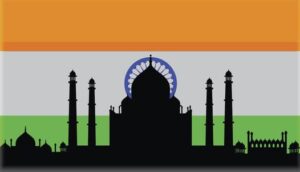India’s Supreme Court has entered hearings on a case that will determine whether citizens have a fundamental right to privacy.
 The case was launched in response to the expansion of Aadhaar, India’s pioneering biometric national ID program. Like any other national ID, Aadhaar includes key biographic data, but it also adds fingerprint and iris biometrics, and it’s used for an increasing number of applications, from accessing government subsidies to filing taxes. Petitioners to the Supreme Court argue that such applications are a violation of Indians’ privacy, which they say is a fundamental right strongly implied in India’s constitution.
The case was launched in response to the expansion of Aadhaar, India’s pioneering biometric national ID program. Like any other national ID, Aadhaar includes key biographic data, but it also adds fingerprint and iris biometrics, and it’s used for an increasing number of applications, from accessing government subsidies to filing taxes. Petitioners to the Supreme Court argue that such applications are a violation of Indians’ privacy, which they say is a fundamental right strongly implied in India’s constitution.
As The Hindu observes, the government has also argued that privacy is a fundamental right in a separate Supreme Court case against Facebook and Whatsapp for their sharing of users’ personal data. But in the Aadhaar case, the government is arguing that privacy is not an absolute right, and that it’s subject to reasonable restrictions.
In a commentary on The Wire, Singapore Management University School of Law research associate Prashant Reddy T. says the Supreme Court’s approach to the question of whether privacy is a fundamental right is a mistake in itself, arguing that such a question is meaningless without being applied to specific, tangible questions like whether a citizen’s medical history is sacrosanct.
In any case, that is the question the court now faces, and the stakes keeping getting higher as Aadhaar continues to expand.
Sources: NDTV, The Hindu, The Wire
–
July 24, 2017 – by Alex Perala


Follow Us